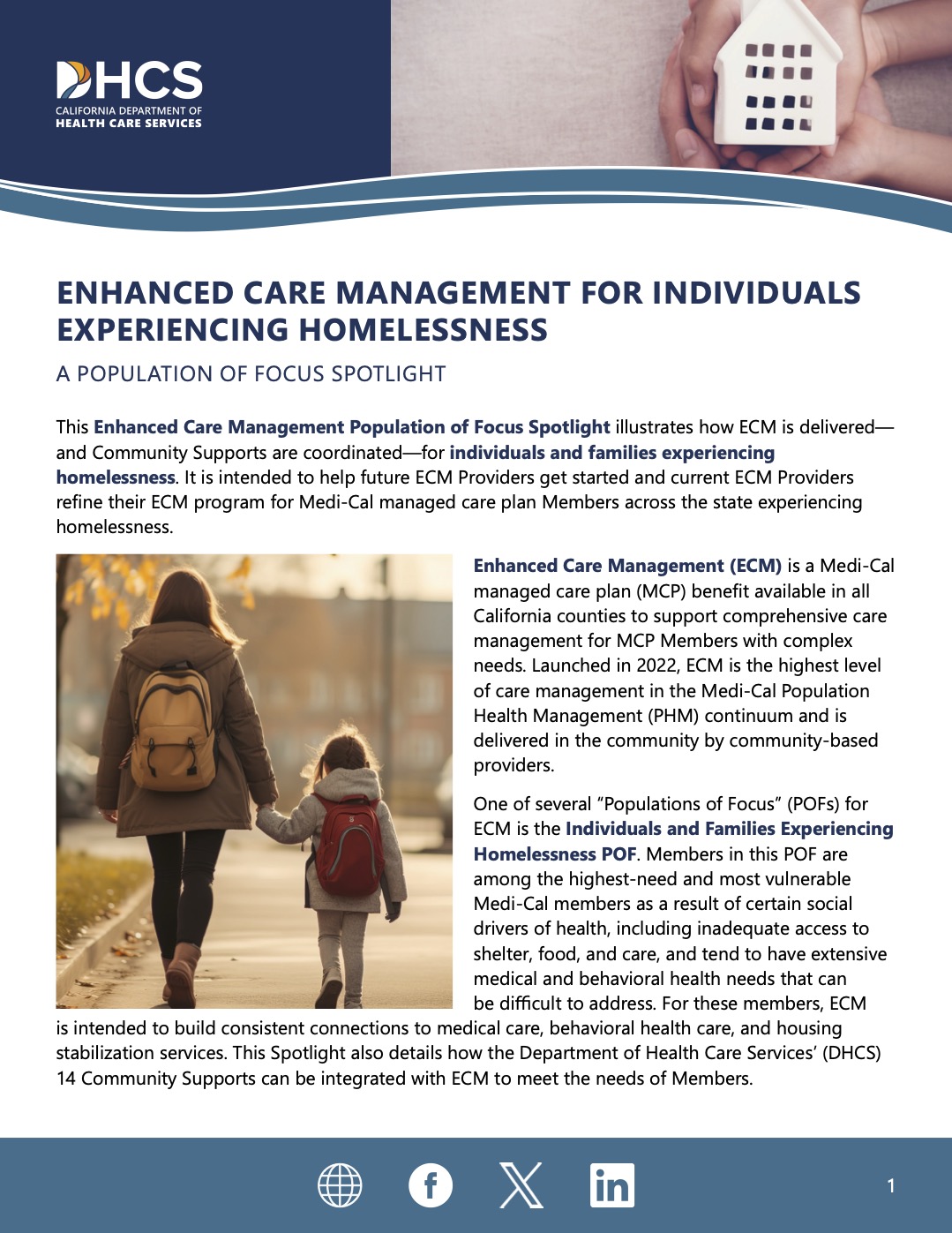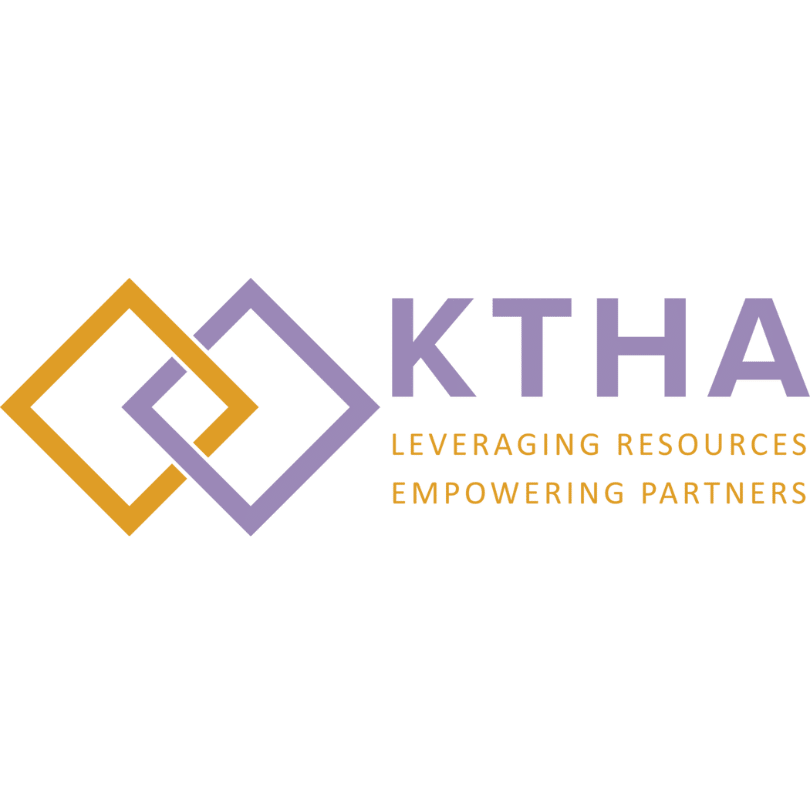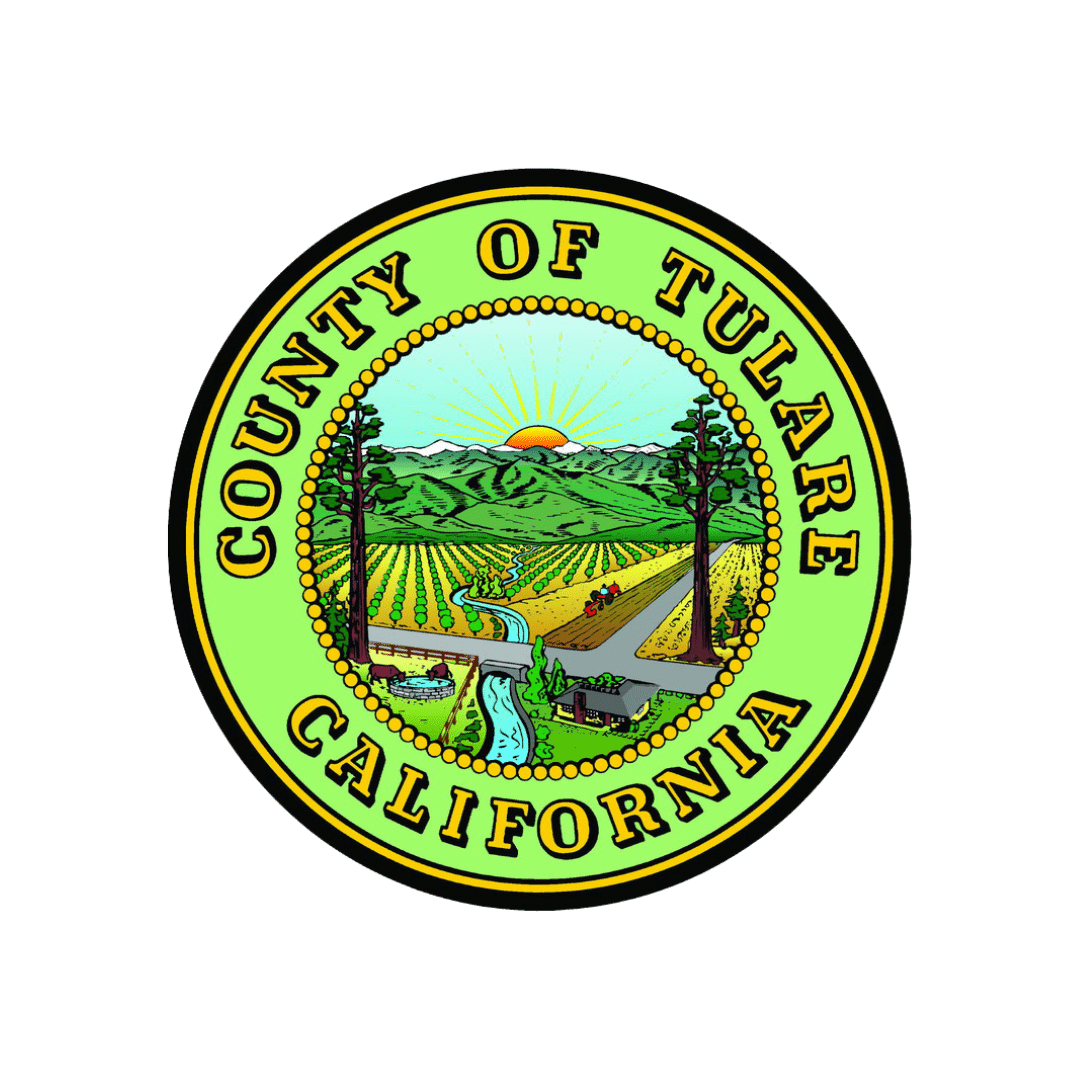POPULATION OF FOCUS
PEOPLE EXPERIENCING HOMELESSNESS
People Experiencing Homelessness
Individuals and families who: (1) Are experiencing homelessness (as defined below); AND (2) Have at least one complex physical, behavioral or developmental health need with inability to successfully self-manage, for whom coordination of services would likely result in improved health outcomes and/or decreased utilization of high-cost services.
An individual or family experiencing homelessness is defined as:
- An individual or family who lacks adequate nighttime residence;
- An individual or family with a primary residence that is a public or private place not designed for or ordinarily used for habitation;
- An individual or family living in a shelter;
- An individual exiting an institution into homelessness;
- An individual or family who will imminently lose housing in next 30 days;
- Unaccompanied youth and homeless families and children and youth defined as homeless under other federal statutes; or
- Individuals fleeing domestic violence or trafficking.
Key Services
The below Community Supports can help community members experiencing homelessness.
Housing Deposits
Help members with the one-time services, such as security or utility deposits, that they need to establish a safe household.
Housing Tenancy and Sustaining Services
Support to maintain safe and stable tenancy once housing is secured, such as working with landlords to address issues, helping with the annual housing recertification process and connecting the member to community resources to prevent eviction.
Transitional Rent (starting Summer 2025)
A maximum of six months of rental assistance to help Medi-Cal members experiencing homelessness or housing instability secure stable housing during critical transition periods.
Short-Term Post-Hospitalization Housing
Temporary housing for those leaving inpatient care settings, including SUD treatment, mental health, correctional facilities, nursing facilities or recuperative care.
Recuperative Care (Medical Respite)
Short-term residential care that provides healing support for members who are being discharged from the hospital and lack stable housing.
Day Habilitation Programs
Mentoring to help the member gain the self-help, social, and adaptive skills needed to live successfully in the community, such as cooking, cleaning, and managing personal finances.
Medically Supportive Food/Meals/Medically Tailored Meals
Deliveries of nutritious groceries or prepared meals along with vouchers for healthy food and/or nutrition education
Sobering Centers
Facilities that provide a safe, supervised environment for individuals to recover from acute intoxication, often as an alternative to jail or emergency room visits
Asthma Remediation
Home modifications to avoid serious asthma episodes. Modifications can include filtered vacuums, dehumidifiers, air filters and ventilation improvements
By the Numbers
Key Community Partners
System of Care Map
A System of Care Asset Map is a tool designed to assess and describe the services available to specific populations, such as the homeless, individuals with mental health or substance use disorders, justice-involved individuals, and more. This map outlines existing community assets and identifies gaps in service offerings across a continuum of care, from immediate needs to long-term support, providing a holistic view of the system. By visualizing these resources, the tool helps evaluate whether parts of the continuum are well-developed, underdeveloped, reactive, or proactive.
When combined with population-specific data, a System of Care Asset Map highlights areas for improvement and informs strategic planning. It serves as a resource for service providers, featuring hyperlinks to partner agencies for easy access and collaboration, and supports community-driven planning to fill service gaps. It incorporates community insights through research, interviews, and local reviews and is designed to be updated regularly to reflect changes in available services.
Find Providers

BARRIER BUSTING
Providers across the country have found the following practices to be very helpful in engaging with our unhoused neighbors.
- Partnering with people with lived experience
- Harm reduction
- De-escalation
- Motivational interviewing
- Trauma-informed care
Training on these topics is also available by creating a free account with the National Health Care for the Homeless Council at this link:
nhchc | Course catalog
Are you a service provider in need of support for the homeless system of care?
Complete the form below for support.



